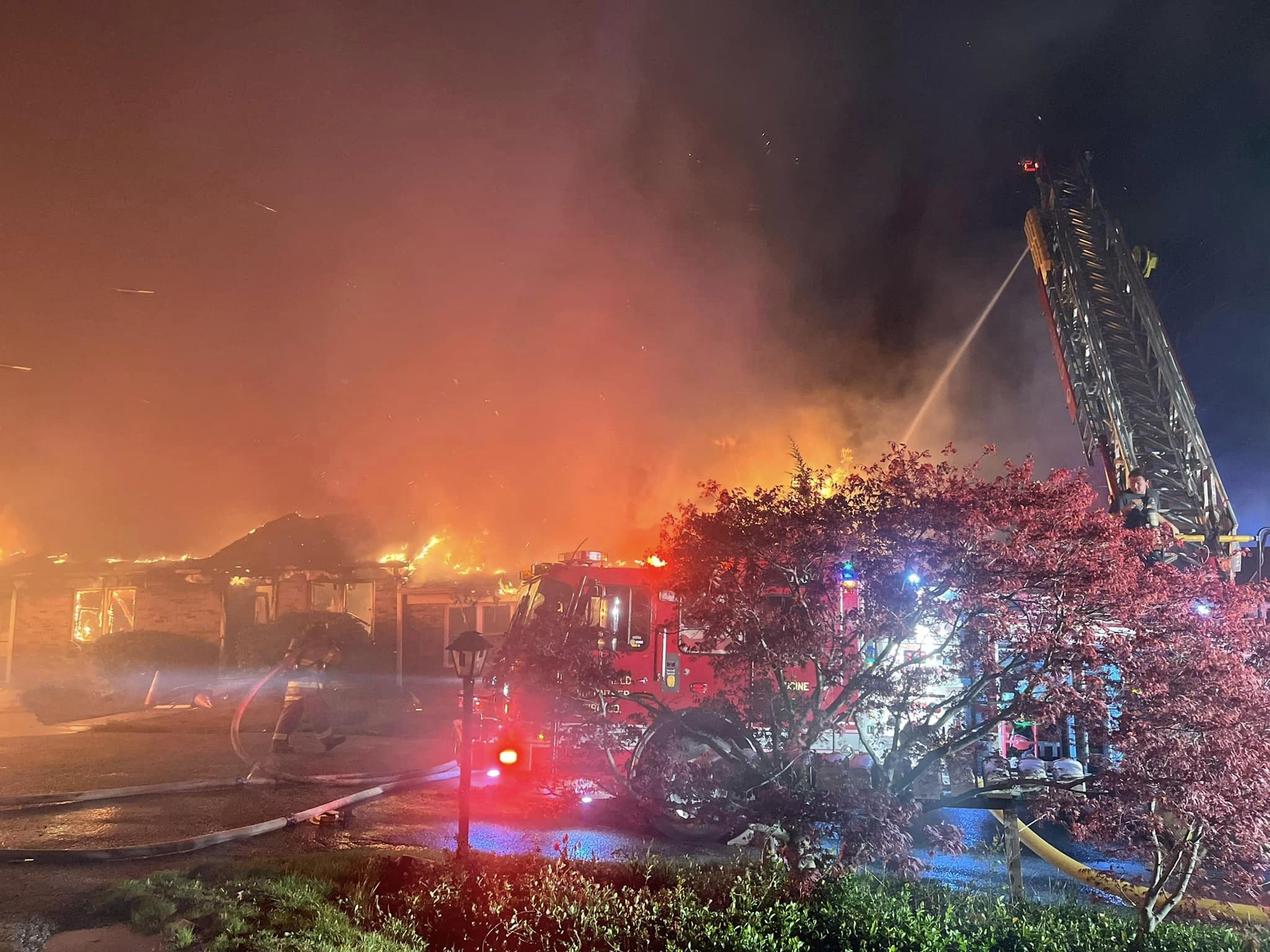Two reported bear attacks in Burlington in the last month have residents wondering what they should do. On Tuesday night the town held a forum and invited a Department of Energy and Environmental Protection wildlife biologist to answer questions.
Many at the forum told stories of their own bear encounters. Most said their encounters did not lead to conflict, but a few said their animals or pets had been killed.
"We woke up on a Sunday morning to five dead animals. It was pretty heartbreaking," said Melissa Haras.
Haras owns Grazin Goats Farm in Burlington, and last month a bear killed five of her goats, despite being fenced in and in a shelter overnight. Since then, she's added an electric fence and taken other precautions. She came out to the town forum to see what else can be done.
"Hopefully figure out ways to better protect my animals, myself, my kids. What's to stop it from breaking into my garage, my home, anything?" said Haras. "I want to protect myself and the bears. We have a lot of them, and it's becoming a problem."
"People should be concerned. Bears have killed people. It's not very frequent, very low probability, but it's a possibility," said DEEP Wildlife Biologist Paul Rego. "Taking the precautions that we recommend, removing food attractions, scaring bears when they can, supervising children when they're outdoors, are all things that can further reduce the chance of an already low-probability event."
Local
DEEP says as the bear population increases in the state, the number of conflicts will continue to rise. In about a year there's been nearly 260 reported bear sightings in Burlington, the sixth most in the state.
"If people are seeing more bears near where they live, it's because they have a growing population, a population that has a high reproductive rate. And we have good habitat in the state," said Rego.
"The bear was behind the tree, the dog came out, she wanted to protect the cubs, she killed the dog," said Gary Duquette.
Duquette says last week he wasn't home when his wife went out into their yard with their two dachshunds. He says his wife looked before heading out and didn't see a bear. Their 14-year-old dachshund Rusty went out into the yard and a bear came out from behind a tree and killed Rusty. He says he called the police and asked them to try not to kill the bear, but by the time he got home, the bear was dead. Police say the bear acted aggressively toward an officer and the bear was euthanized. Duquette says no one realized the bear had three cubs up a nearby tree until it was too late. DEEP says the three cubs were taken to a rehabilitator.
"We're very cautious. We have no food, no bird feeders, no garbage," said Duquette.
DEEP says eliminating food attractants is an important step in reducing encounters with bears but that it won't prevent all of them.
"The number of conflicts grows right in step with the growing bear population, so I would predict as the bear population continues to grow, the number of conflicts will grow right in step with that. Education is important and can reduce some bear conflicts, but it also has very limited application," said Rego. "A lot of our towns, residents, are in wooded areas that are very good habitat, so even if people do take all the right measures to prevent conflict, there's still going to be bears mingling amongst populated areas."
Many people who spoke at Tuesday night's forum pushed for a regulated bear hunting season. DEEP says Connecticut is the only state in the northeast with an established bear population that doesn't have a hunting season.
But others at the forum disagreed with a hunting season and defended the bear behavior, saying people need to leave them alone and take the appropriate steps to keep them away.
Some at the forum suggested an ordinance against feeding wild animals.
For more do's and don'ts when it comes to bears, you can click here or here.



